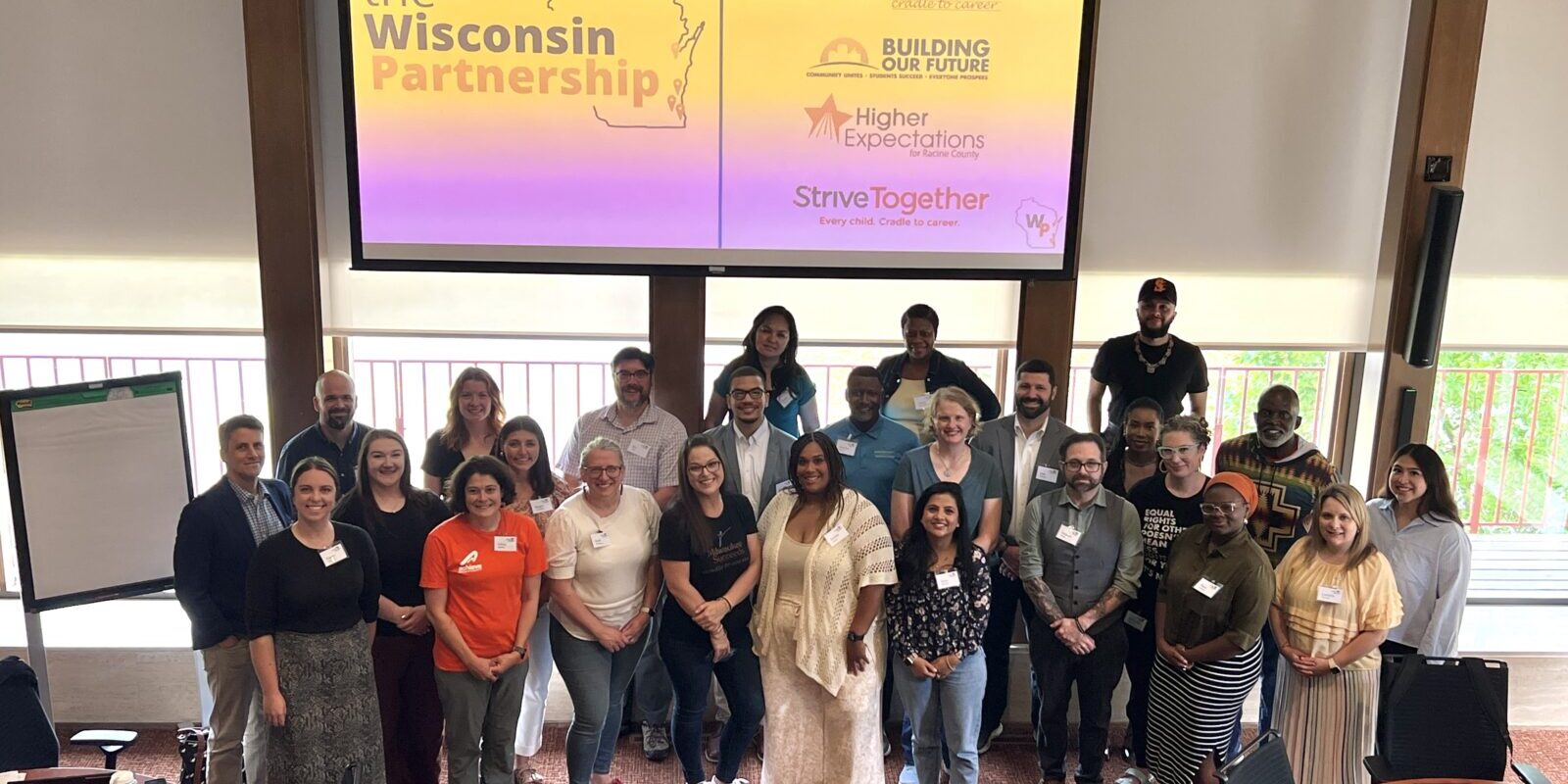Wisconsin’s Big Win for Early Childhood
In July 2025, Wisconsin took a bold step toward giving more children the strong start they deserve. The state’s biennial budget includes nearly $380 million in new investments to strengthen early care and education and expand evidence-based literacy instruction.
This historic win is the result of years of aligned advocacy and coalition building, made possible by voices and networks across the state. One key contributor is the Wisconsin Partnership, made up of four StriveTogether Cradle to Career Network members, Milwaukee Succeeds, Higher Expectations for Racine County, Building Our Future and Achieve Brown County.
In collaboration with other coalitions, the Wisconsin Partnership aligns strategy, elevates community voice and advocates for policy change that centers youth and families. Through this cross-community work, collective efforts have ensured that early care and education now has a seat at the policy table. 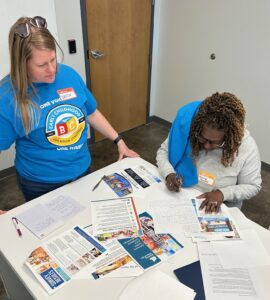
Thanks to this work, Wisconsin’s budget includes $330 million to stabilize the child care sector through direct payments to providers, increased Wisconsin Shares reimbursement rates, a new school readiness initiative called Get Kids Ready and a pilot to expand access for infants and toddlers. The state also allocated separate funding to support the implementation of Act 20, Wisconsin’s science of reading legislation. This marks the most significant early childhood investment in the state’s history and a major milestone in the Partnership’s goal to put 10,000 more young people on a path to economic mobility by 2030.
“Wisconsin schools, kids and families will benefit from priorities in this budget cycle, but our work as a Wisconsin Partnership does not end here,” said Sarah Beckman, executive director of Achieve Brown County. “We look forward to continued work with policymakers and elected and appointed officials to use this budget cycle as a starting point and launching pad to ensure early care, K-12 and postsecondary education systems continue to be prioritized and strengthened.”
Investing in early childhood lays the foundation for every outcome along the cradle-to-career continuum. It prepares children to thrive in school, supports working families and builds pathways to future economic mobility.
Govenor Tony Evers has signed the 2025–27 budget into law, and for the first time in years, child care has taken center stage. The investment reflects a hard-fought commitment to young children, working families and providers. “Put simply: This is a pro-kid budget that’s a win for Wisconsin’s kids, families and our future,” Evers said in a press release.
Earlier this month, the Partnership gathered in Racine to reflect on this milestone and look ahead. The convening brought together state and national partners including the Wisconsin Department of Public Instruction, the Greater Milwaukee Foundation (which houses Milwaukee Succeeds) and StriveTogether. Local leaders from Racine Unified and Kenosha Unified school districts grounded the discussion in lived experience, showing how early investments are already influencing instruction and support. 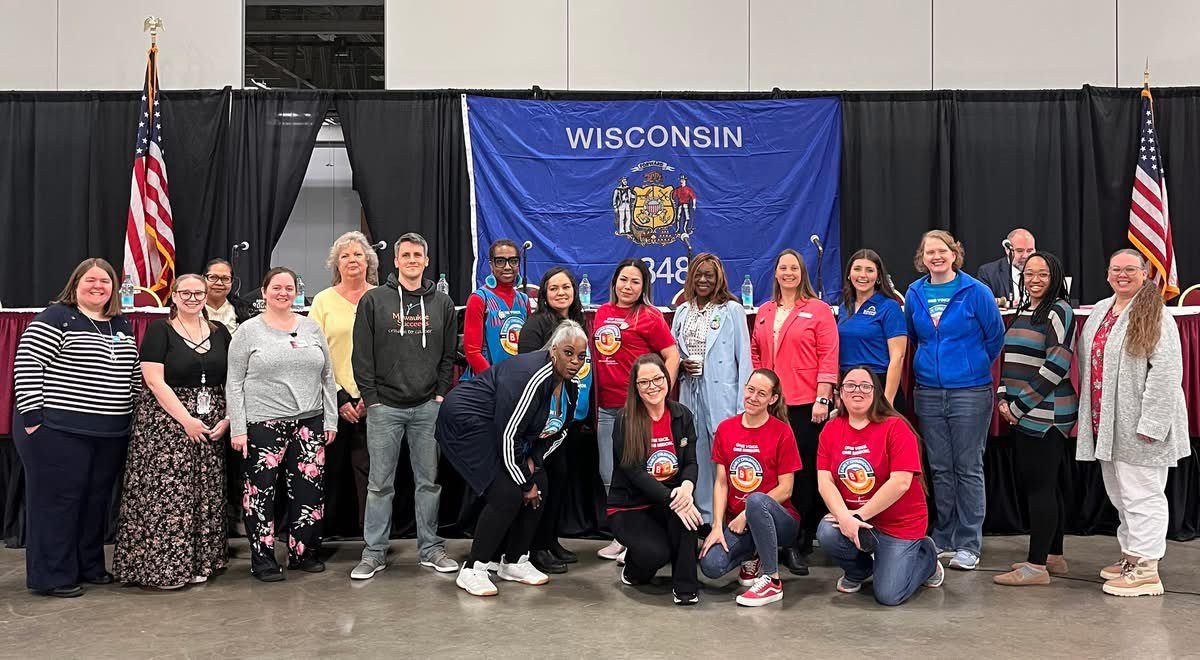
The Wisconsin Partnership at Work
The Wisconsin Partnership’s strategy was coordinated, collective and rooted in local power, based in community coalitions that collectively include hundreds of cross-sector partners. Over the past year, leaders testified at Joint Finance Committee hearings, brought more than 50 community members to Madison for Childcare Advocacy Day and held over 20 meetings with lawmakers from both major parties. They built bipartisan support and kept early learning and literacy at the center of the conversation.
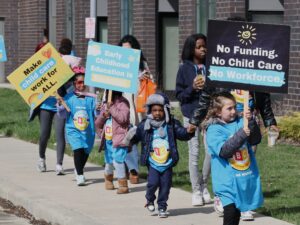
Milwaukee Succeeds initially retained a contract lobbyist in Madison and maintained that relationship over several years. Eventually, the partnership was expanded to include the full Wisconsin Partnership. The lobbyist worked closely with staff to craft a shared policy agenda, design strategies that activated all four local partnerships and lead direct lobbying efforts on behalf of the coalition.
Their efforts paid off. The final budget includes $110 million in direct payments to providers, $123 million to raise reimbursement rates under Wisconsin Shares, $66 million to launch Get Kids Ready and $28.6 million for an infant and toddler access pilot. It also releases $50 million in funding for implementation of Act 20. This funding will reimburse school districts for the work they’ve already done to implement Act 20 — work that was delayed for nearly a year because of debate over how the funds should be distributed. Districts across the state, including in Kenosha and Racine, will receive retroactive support for their efforts.
For the first time, the budget commits ongoing general-purpose revenue to early childhood, creating a new state funding stream that invests directly in early childhood education. “These investments are historic and the result of mental model shifts by both parties over the last several years,” said Dave Celata, vice president of policy and research at the Greater Milwaukee Foundation.
While this was a collective win, it’s also a reflection of local leadership. “This investment is a game-changer for Kenosha County families,” said Tatjana Bicanin, executive director of Building Our Future. “It helps stabilize the child care sector, expand access for working parents and strengthen the foundation for early learning and future success.” Elizabeth Erickson, executive director of Higher Expectations, added that while the funding helps families thrive, there’s more work ahead to ensure every resident has what they need to succeed.
In Milwaukee, that advocacy was grounded in grassroots leadership and data. In a Milwaukee Succeeds blog post, Early Childhood Education manager Yimma Davila-Castro said, “This investment is a direct result of our collective advocacy. While it won’t fix everything, it’s a meaningful step toward strengthening a broken system.” Over the past year, Milwaukee Succeeds launched an ECE Advocacy Training Series in partnership with the partnership’s ECE Ambassadors, equipping community members with the tools to take action.
Milwaukee Succeeds also paired training with data and storytelling. Reports like Unlocking Wisconsin Shares and Still Making Every Dollar Count provided a clear, data-driven case for change. “We’re always thinking about the broader picture and what insights could help move the work forward,” said Kristin Kappelman, director of research. Samantha Reynoso, ECE data analyst, added, “We work closely with partners to make sure the stories and experiences behind the data are part of the picture.” These efforts led to letter-writing campaigns, in-person testimony and a coordinated media push that helped keep early childhood education in the spotlight throughout the budget process. 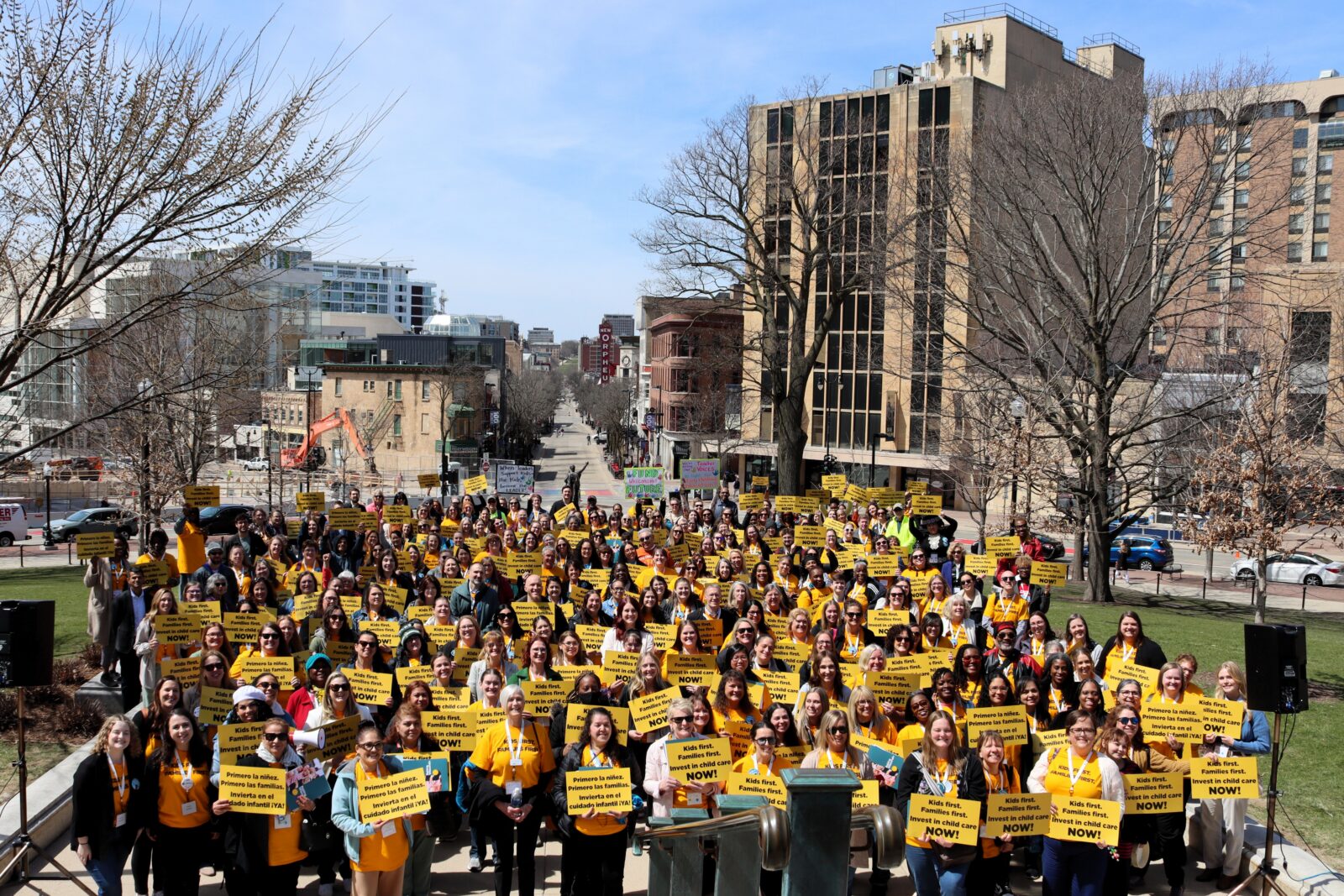
The Power of Infrastructure
Behind the scenes, shared infrastructure made this level of alignment and impact possible. Since 2018, StriveTogether has invested nearly $7 million to support local and statewide partnership work. Of that, $900,000 was directed specifically to policy efforts, including a $150,000 investment from the Pritzker Children’s Initiative to support prenatal-to-three policy and $750,000 to strengthen the statewide coalition. These investments, paired with strategic coaching, outcome tools and ongoing capacity support, helped build the foundation for aligned advocacy and lasting systems change. This support has helped build the systems, relationships and strategy needed to move from aligned priorities to real outcomes for children and families.
This infrastructure is especially critical when the stakes are highest. When we invest in early childhood, we are supporting kids for the rest of their lives, setting in motion better outcomes in third-grade reading, high school graduation, postsecondary success and long-term economic mobility.
At the recent convening in Racine, StriveTogether’s policy team facilitated workshops on local agenda-setting and statewide storytelling, helping partners translate community priorities into coherent action. The group explored how to track impact, build local capacity and shape policy around important outcomes: kindergarten readiness, early literacy and economic mobility. 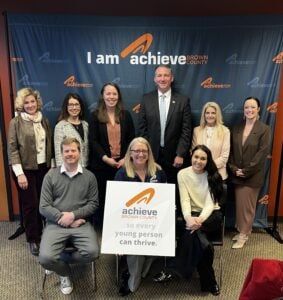
For Shannon Powell, director of policy and partnerships, local government at StriveTogether, the win is also personal. “As a lifelong Wisconsin resident, it was powerful to stand alongside the coalition in Racine while the budget was being finalized,” he said. “We were receiving live updates from our government relations teams in Madison and watching key priorities make it into the final budget. It reinforces the impact of what’s possible through local collaboration and we’re excited to share what we’ve learned so other Cradle to Career Network communities can build on this momentum.”
In the weeks ahead, partners across the state will be closely tracking the next phase of this work. With trailer bills expected to follow the budget, there will be important technical details to finalize and language to refine. As implementation begins, the Wisconsin Partnership will remain engaged, ensuring the policies passed translate into real outcomes for children and families. At the same time, partners like the Greater Milwaukee Foundation will continue long-term planning, including ongoing support for the Milwaukee Reading Coalition and next steps in the foundation’s broader strategic plan. These investments mark real progress, but the path to systems transformation is ongoing and the work continues.
Wisconsin’s story shows what’s possible when local communities lead and partners and investors commit to long-term systems change. It’s a story of shared power, aligned strategy and policy solutions that reflect the hopes and realities of families. These learnings are already shaping similar efforts across the Cradle to Career Network, with other communities building on this momentum and achieving wins in early childhood policy. At StriveTogether, we’re honored to support this work and excited for what comes next.

